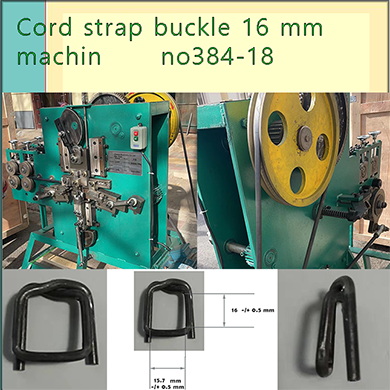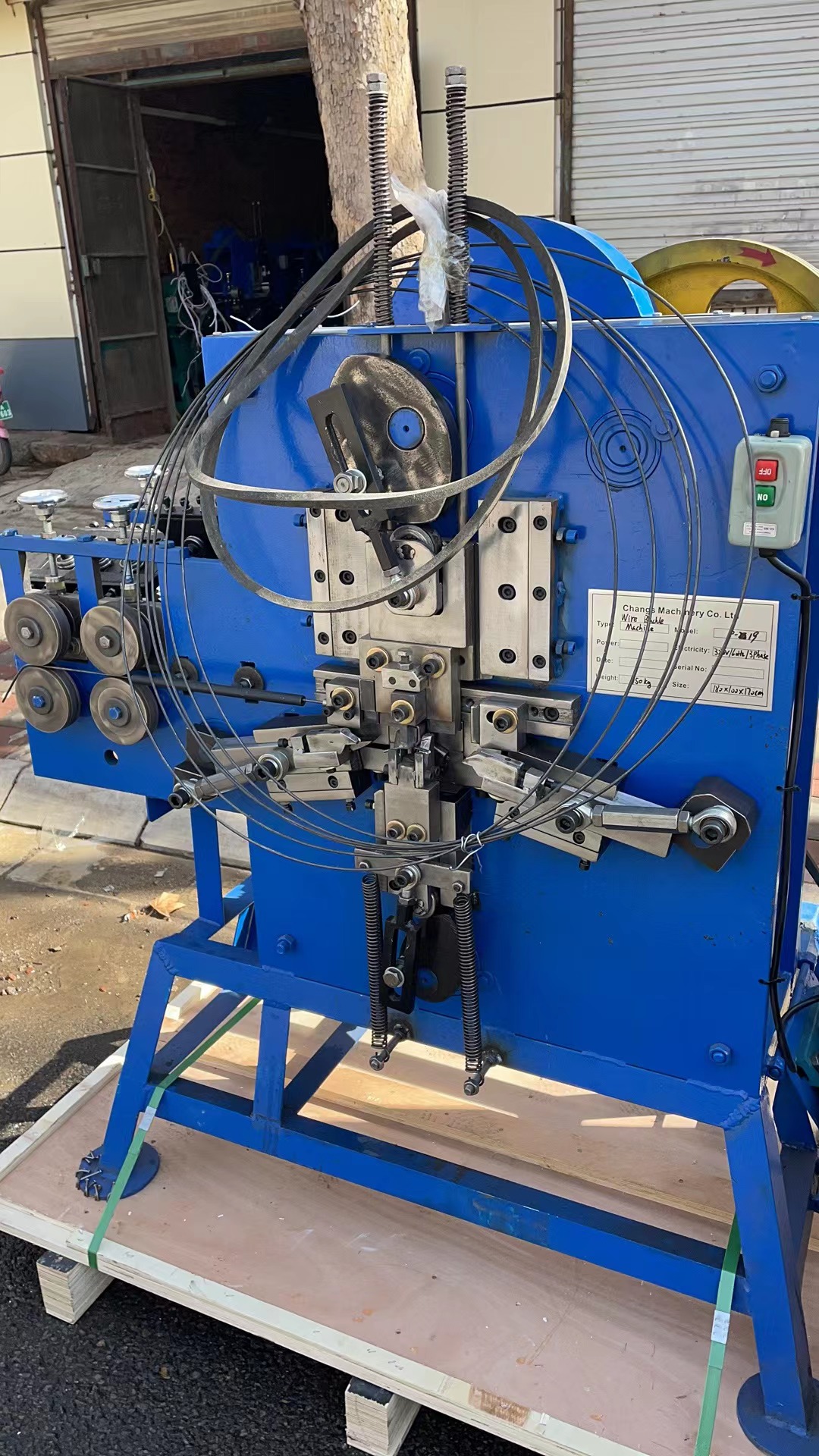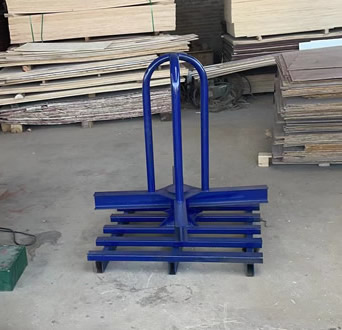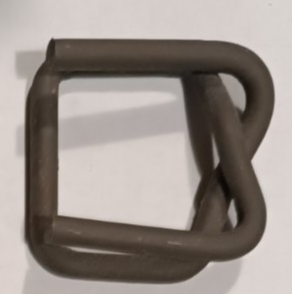
Video of cord strap buckle 16
Video of cord strap buckle 16

The phosphate buckle 16 mm for woven poly strapping is made by
the machine and packed for Serbia

the special wire uncoiler is designed for better loading and unloading
with a steel pallet underneath which greatly improve the movability

the buckle is made by black wire first and then
make it phosphate buckle 16 mm for woven poly strapping
video of the machine of thet phosphate buckle 16 mm for woven poly strapping
Composite cord strapping is designed as one of the best alternative to metal strapping.
When used with buckles, composite strapping provides you the strongest and most reliable joint. In fact it is considered the most durable joint in the strapping industry.
The machine which produces the buckles are very important in the whole industry line which need to be fast, cost effective and safe + stable.
our buckle machine provides the solution to the needs of customers.
we have 16 buckle machine
Speed: 50 pieces/minute
size: 16x 3.0-3.5 mm
thickness:3.0--3.5mm
Material: steel wire galvanized
Download Specification in PDF file:
PS: specification of the buckle 16
Nominal Size: 16 mm
Inner Width (A): 16 mm ± 0.5 mm (This is the critical dimension for strap fit).
Outer Width (B): Typically 22 - 26 mm (varies by design and manufacturer).
Length (C): Typically 35 - 45 mm for the male end; 25 - 35 mm for the female end.
Height/Thickness (D): Typically 8 - 12 mm.
Pin Diameter (for cord): ~ 4 - 5 mm (designed to fit common 550 paracord or similar).
(Note: Image is for illustrative purposes; exact proportions may vary.)
Common Materials:
Plastic (Most Common):
Nylon (PA6, PA66): Excellent strength, durability, and flexibility. Resistant to chemicals and abrasion. The industry standard.
Acetal (POM): High stiffness, low friction, and excellent fatigue resistance. Often used in higher-end buckles.
Metal: Stainless steel or aluminum for heavy-duty applications. Less common for 16mm cord-specific buckles.
Finish: Usually matte or semi-gloss. Available in a vast range of colors (e.g., Black, Coyote Brown, Olive Drab, Safety Orange, Camo patterns).
Tensile Strength: A quality nylon 16mm buckle should have a break strength between 150 kg (330 lbs) and 250 kg (550 lbs). This is a critical spec for load-bearing applications.
Release Force: The amount of force required to disengage the buckle. Should be high enough to prevent accidental release but low enough for easy operation. Typically tested with a specific strap material.
Temperature Resistance: Standard plastic buckles can typically withstand -40°C to +80°C (-40°F to +176°F) without significant loss of properties.
Mechanism: Side-release action. Squeezing the two spring-loaded arms on the sides of the female end disengages the locking prongs from the male end.
Cord Bar: Features a central bar on the male end specifically designed to loop and secure a cord, preventing it from slipping out.
Strap Bar: The crossbars on both the male and female ends are where the nylon webbing is looped and sewn.
Spring: Internal spring (usually metal in a plastic housing) provides the locking force.
Strap Type: Compatible with nylon webbing.
Strap Width: Designed for a 16mm (5/8 inch) width strap. Using a wider strap will not fit; a narrower strap may be loose and not secure properly.
Strap Thickness: Optimized for standard ~1mm thick webbing.
Cord Type: Perfect for Type III 550 paracord (~4mm diameter) or other accessory cords of similar size.
Backpacks & Bags: Sternum straps, compression straps, liftoff straps.
Outdoor Gear: Dog collars/leashes, helmet chin straps, tactical equipment, hiking pole attachments.
General Use: Any application requiring an adjustable, quick-release fastening system for straps and cords.
While not always certified, reputable manufacturers design and test their buckles to meet or exceed standards from organizations like:
BSCI (Backpack Safety and Comfort Initiative): For sternum strap buckles.
General ISO/ASTM Standards: For plastic material properties and tensile testing.